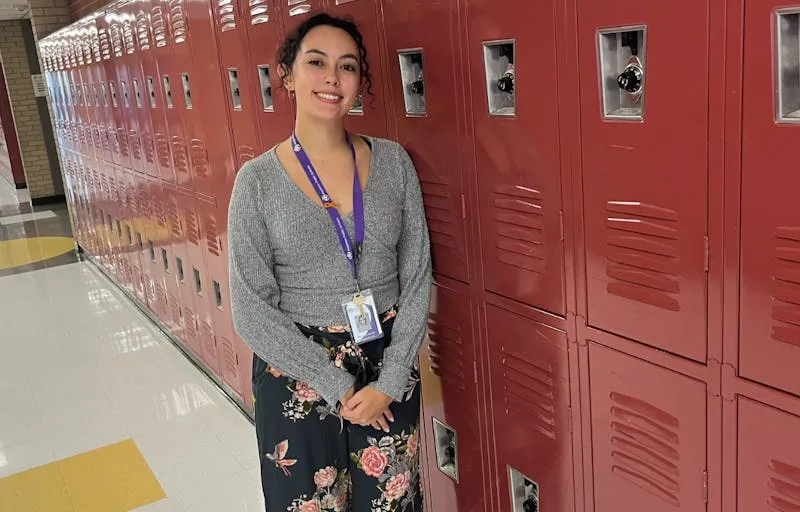These days, most faculty members are tired, sad and as anxious as our tired, sad students. We spend time doing things that aren’t what our advisers did, or what they trained us to do, or even really what we want to do.
We serve on too many committees, busy with work that’s unrewarded and mostly invisible, and we must explain to civilians that, no, we don’t have summers off—we just don’t get paid to do the research we have to produce to survive, even if no one ever reads it. Some of us juggle zillions of courses at multiple institutions and can barely afford dog food. Most people getting Ph.D.s these days can no longer expect to land a permanent job. And many of us who were lucky enough to get on that last gravy train to tenure are ready to hop off, if we could only think of something else we’re qualified to do.
As tired, sad and anxious as I am, I still find this gig a privilege: indoor work, no heavy lifting. And the academic world, with all its wacky quirks, is fascinating. Like other cultural niches, we have our own jargon, celebrities unknown to the wider public, rituals that make zero sense to outsiders (and to many of us) and a deeply entrenched caste system that keeps us humble. (Ha-ha.)
I’ve been in multiple rings in the academic circus. After I bailed out of scholarly publishing—first at Oxford University Press and then at Duke—I worked in undergraduate admissions at Duke. I wrote a snarky book about that experience, then published two more to atone for my sins. That experience fed into my next act: For a quarter century, I spouted off in columns for The Chronicle of Higher Education a rival publication, hoping to give academics permission to write for and like humans.
When I became a faculty member, I felt I’d won the lottery. Who else has this kind of job security and so many degrees of freedom? I try to remember how fortunate I am when I’m tempted to complain. (Doesn’t stop me.) It helps to remember that having tenure is luxurious compared to being staff, where I was sometimes treated as one notch above custodians and had to deal with almost as much shit.
Two years ago, I was asked by Inside Higher Ed’s co-founder, my old buddy Doug Lederman, to create a paywalled newsletter for industry leaders. I got a crash course in governance and learned how little I understood about how universities are run. In off-the-record chats with presidents, I’ve realized that rarely does anyone see the full picture, including faculty members like me who believe they know it all.
Those conversations opened my eyes to just how brutal the job has become—death threats, harassment by frat-boy trustees, vicious attacks from faculty senates, black mold in presidents’ houses and other crap that would make most of us run screaming. It’s enough to think presidents deserve those big honking salaries. Unless they suck. Which, undoubtedly, some of them do. Just not the ones willing to talk to me and write anonymously for no rewards other than the rare opportunity to be truthful and vulnerable on the page.
Of course, the problems in higher ed go far beyond presidential housing crises and governance theater. The sector’s challenges create genuine existential threats to a shocking number of the nearly 4,000 institutions that make up our ecosystem. And yet, we beat on, boats against the current, trying to figure out how to keep doing meaningful work in this strange, insular, endlessly complicated world we’ve chosen, one that’s always been isolated from what others call “the real world” (and not in a fun MTV way) and that is, in many ways, small.
Small World is, in fact, the title of the middle novel in David Lodge’s campus trilogy. Long ago in a galaxy far, far away (the ’80s, NYC), I read it after gulping down the first, Changing Places, which includes one of the best bits in academic fiction. In a game called Humiliation, each person in the English Department names a book he hasn’t read but assumes the others have. So caught up in wanting to succeed, a poor sap calls out Hamlet. He wins the game and is denied tenure.
Lodge’s fictional world captured something true about academic insularity, but even his juicy satire couldn’t anticipate the daily reality most of us don’t want to face today—the fact that we are no longer trusted and respected by the public, we’re going through leaders like Kleenex during flu season, the feds are taking a chain-saw approach to federal funding, previously dull topics like accreditation are now going to change all of our lives and ideas of inclusion and access we were naïve enough to think would change the world are being thrown into the trash heap
It’s a shit show big yikes. In some ways, though, academe is still a small world, even if the days of budgets for international conference hopping à la Lodge are not within the reach of most of us. But if you read The New York Times, The Washington Post and The Wall Street Journal, you might think higher ed consists of about 20 schools, plus another dozen or so when they’re trying not to be snobby.
Most of us do not live in that world.
Most of us don’t live in a world where a degree-seeking student is an 18- to 22-year-old whose only job is going to class.
Most of us don’t work at institutions where the six-year graduation rate is 90 percent. Or 80 percent. Or even 60 percent.
Most of us don’t work at places that will be hit hard by the rise in the endowment tax.
Most of our schools were in decline even before the recent upheavals, facing eroding public trust and not enough butts to put in our classroom seats. And each department plays a zero-sum game trying to attract majors, which are, if you speak with employers, as I’ve done for my most recent book, important to no one (save faculty and department chairs).
Yet many faculty, staff and students don’t pay enough attention to what goes on beyond their campus gates to notice that everything else in our society has changed while we remain conservative stolidly averse to adaptation. With so many colleges and universities circling the drain, “Don’t look up!” feels like a reasonable response.
In this space, each I’ll draw on my experience to explore corners of our small world that may be overlooked. What I can promise is no bullshit candor about both the disasters and the unexpected moments of grace. Because even as our world grows smaller and more precarious, it remains endlessly fascinating. And well worth fighting for.


